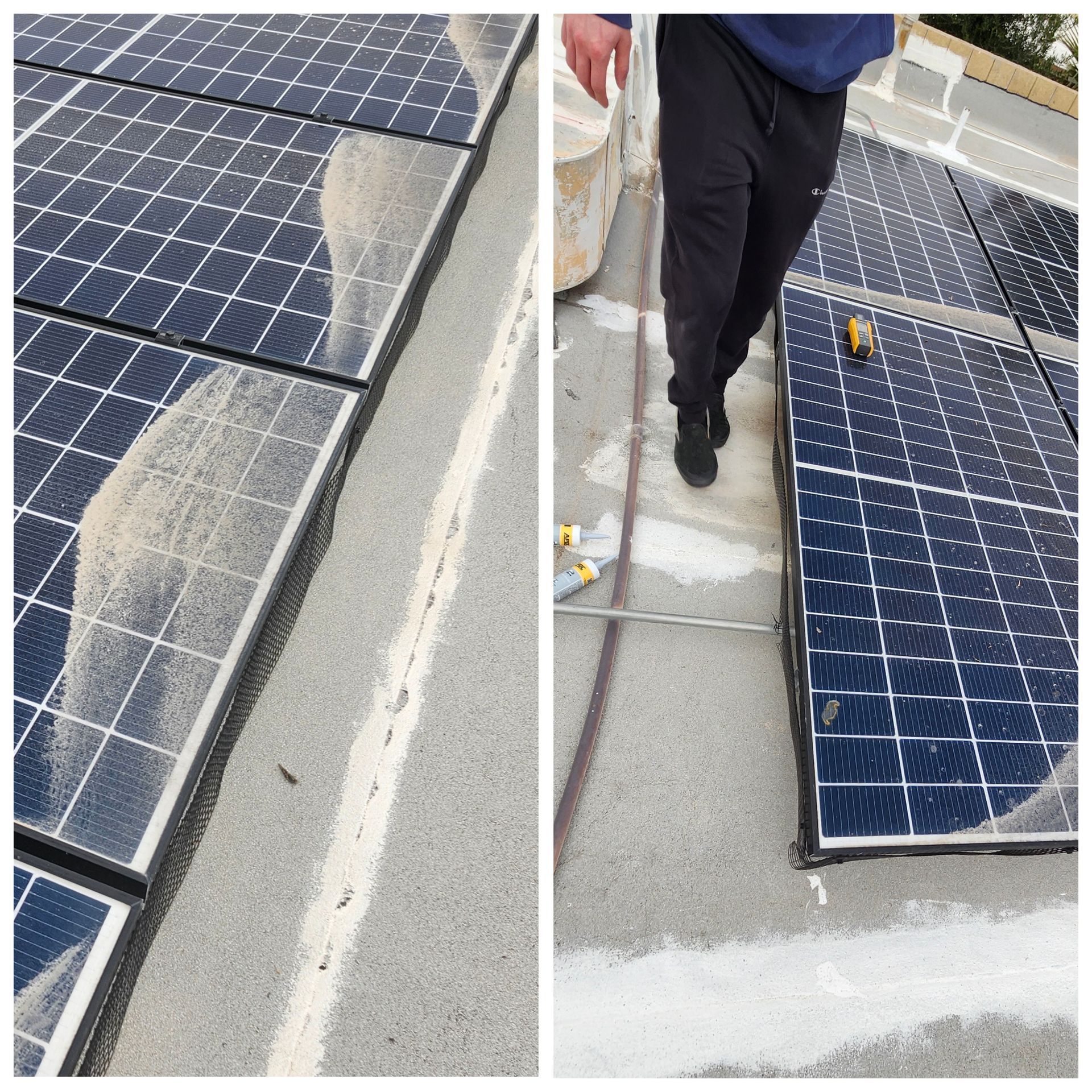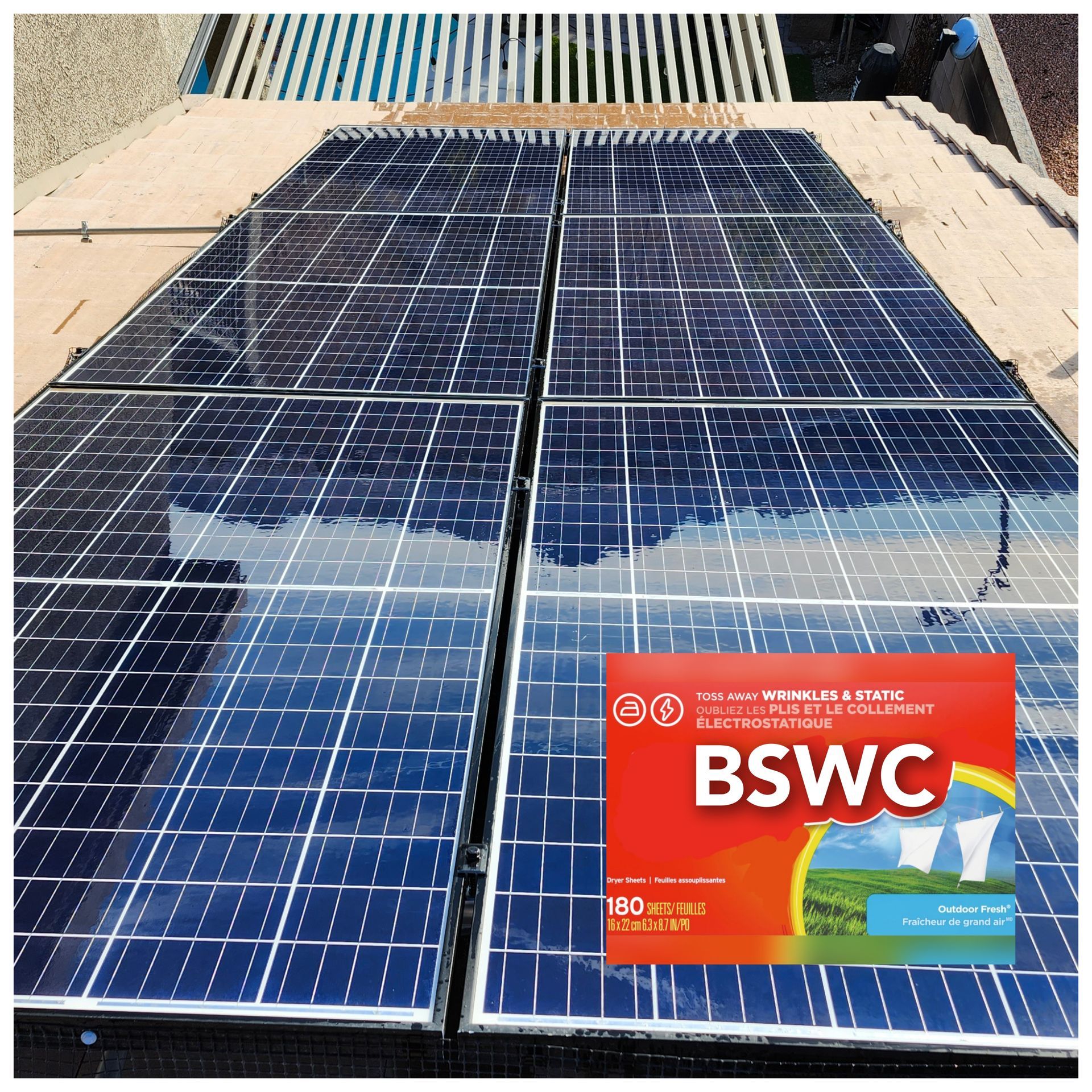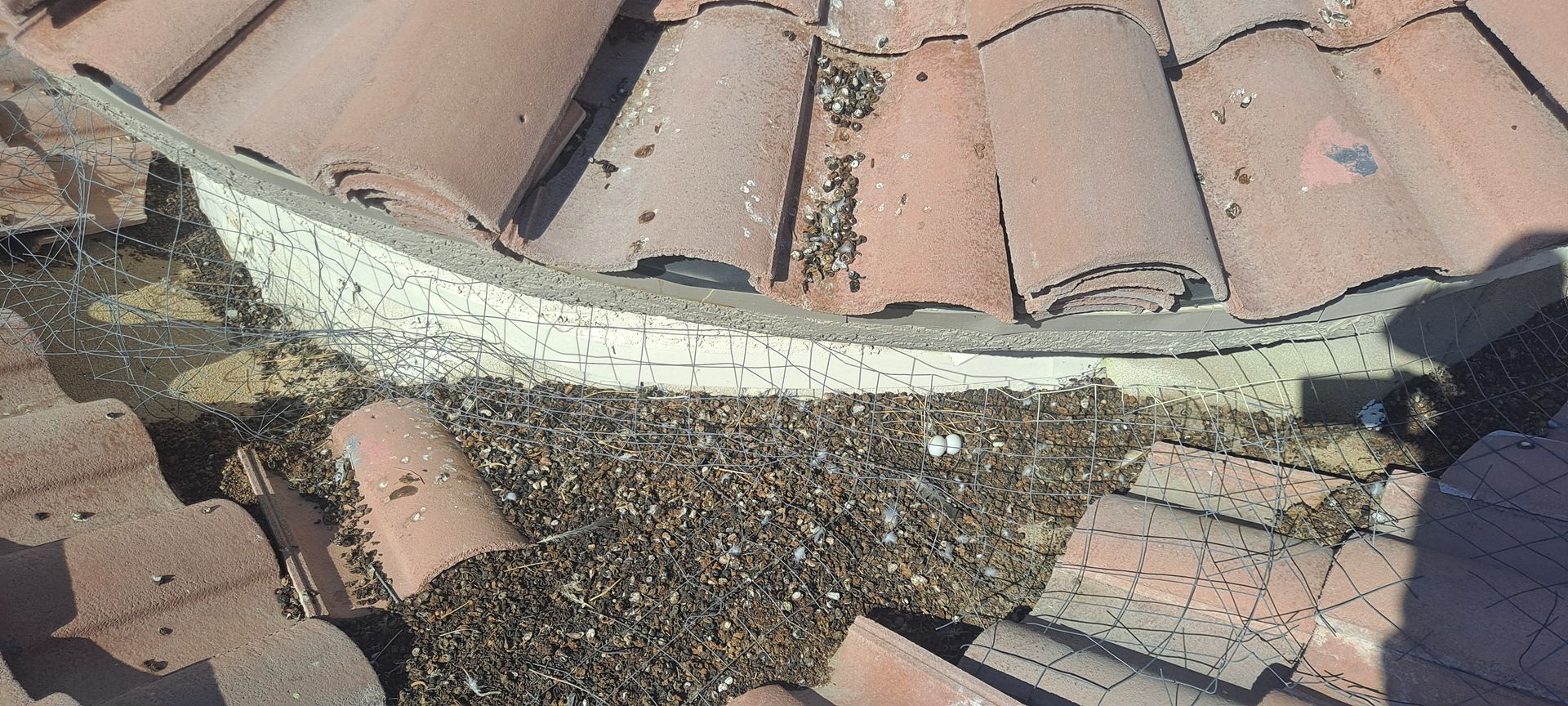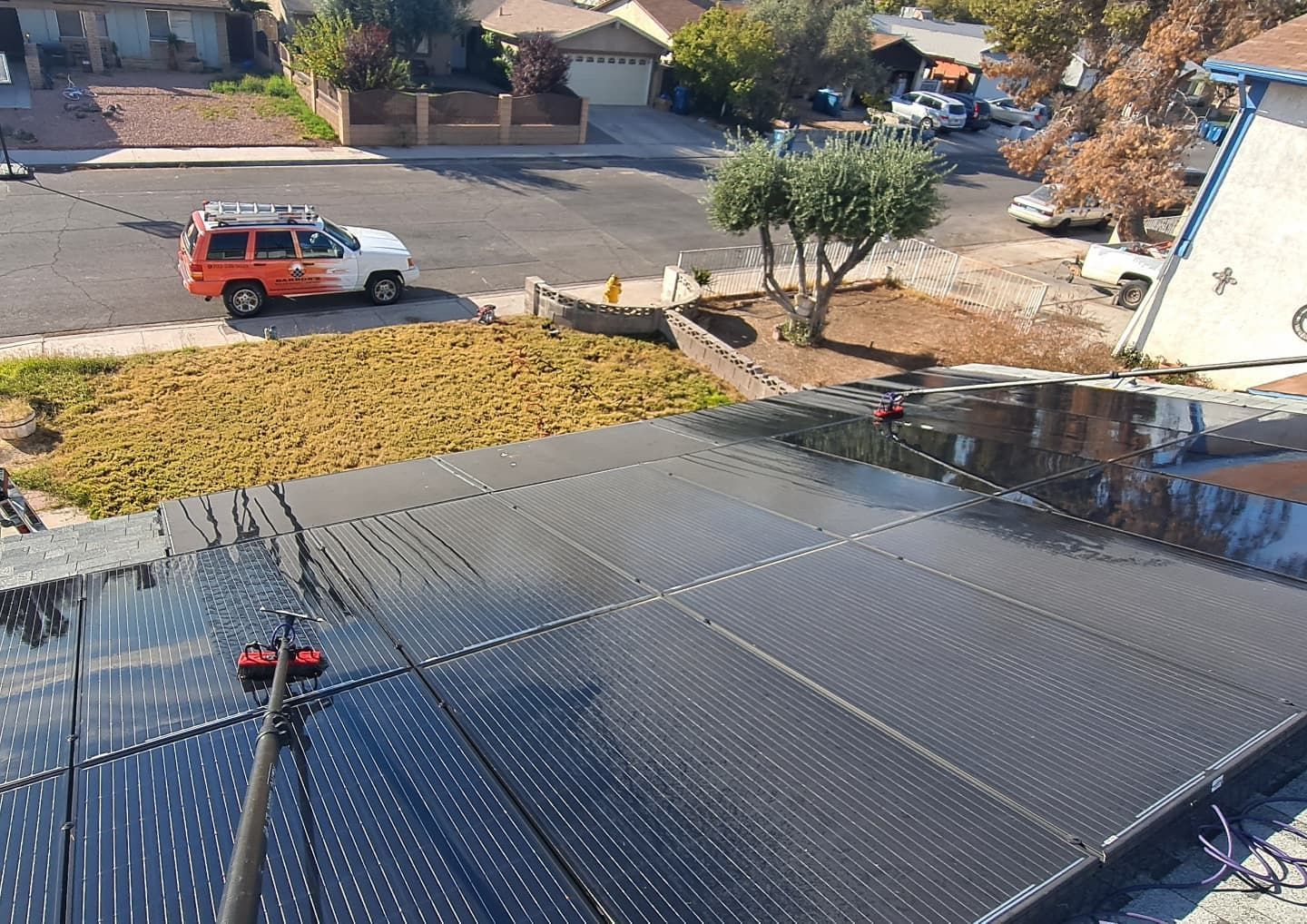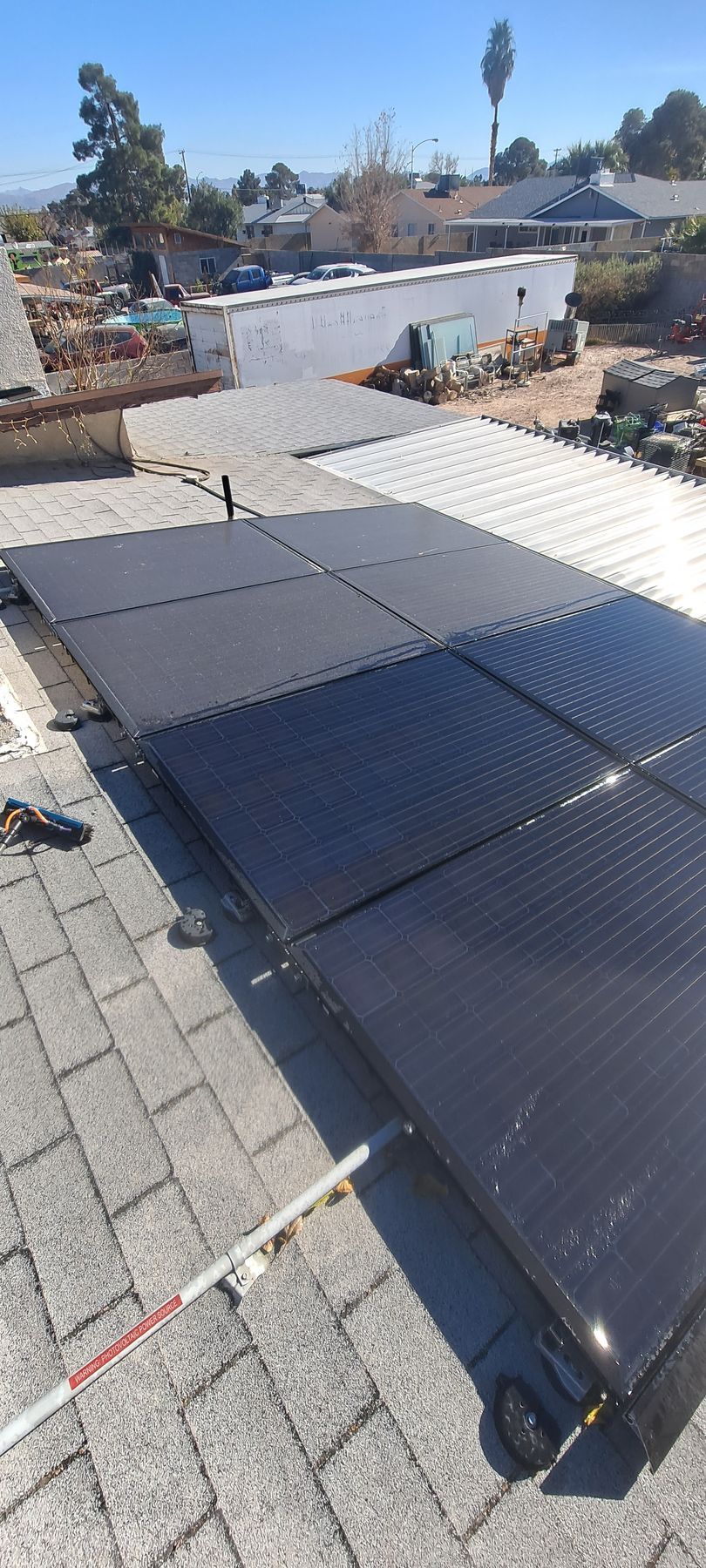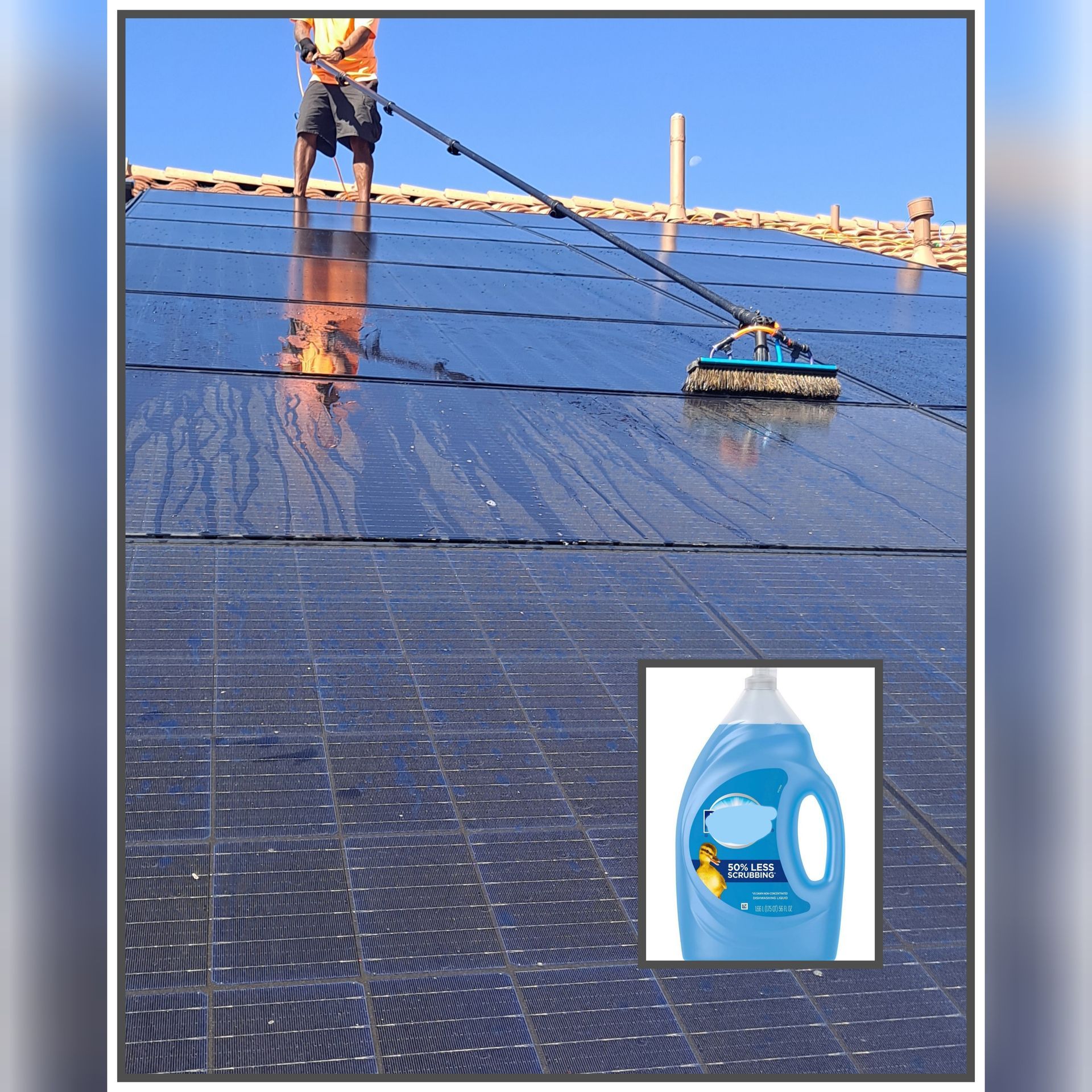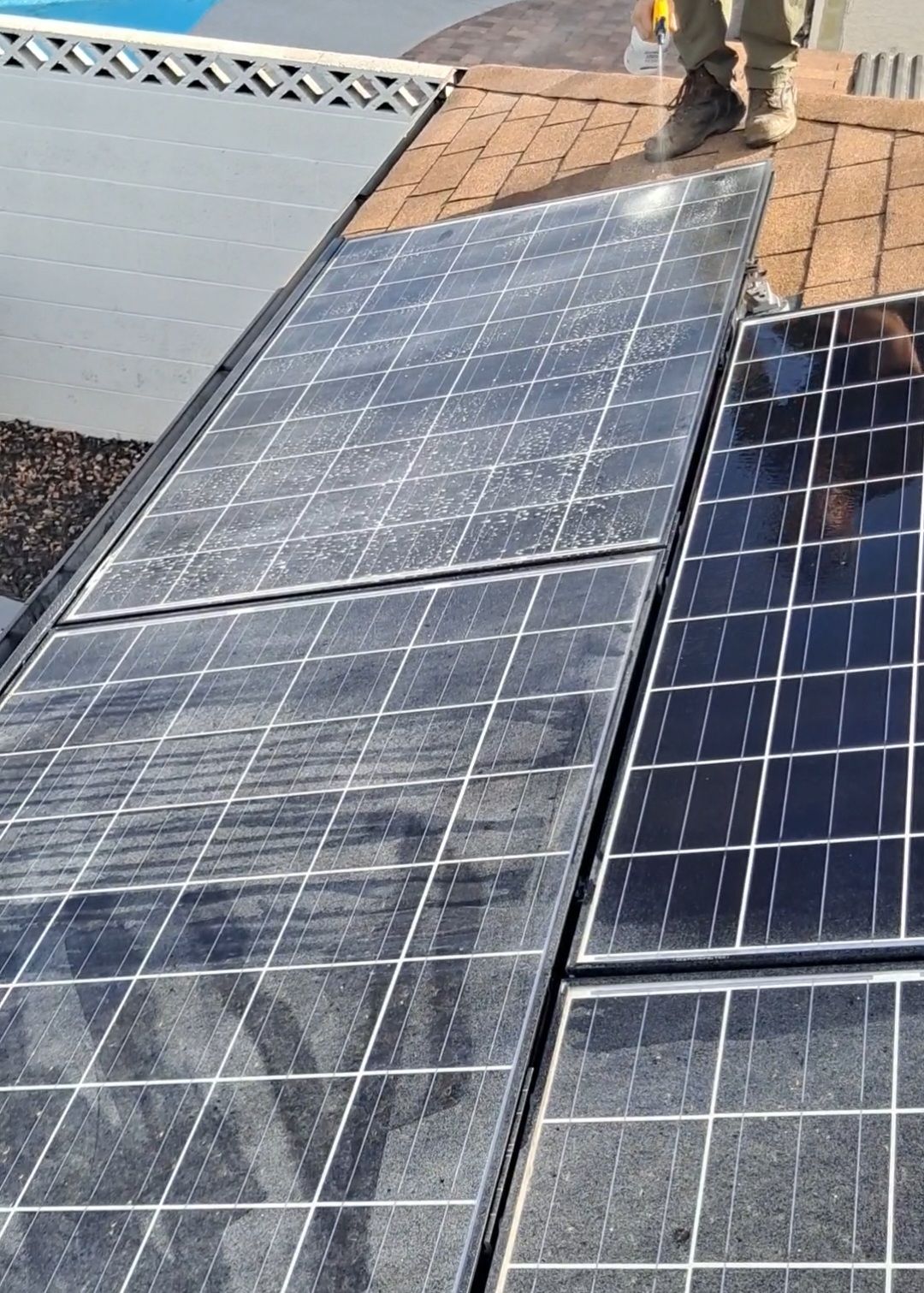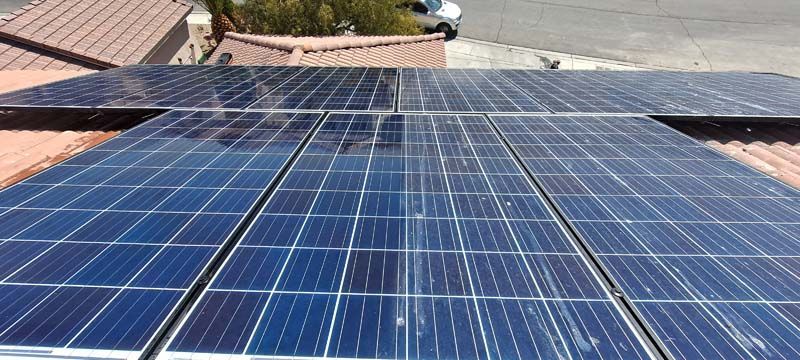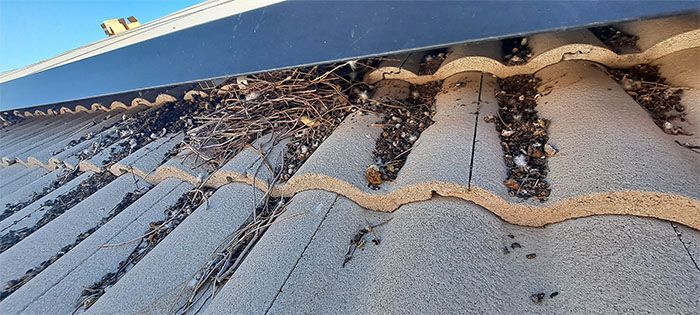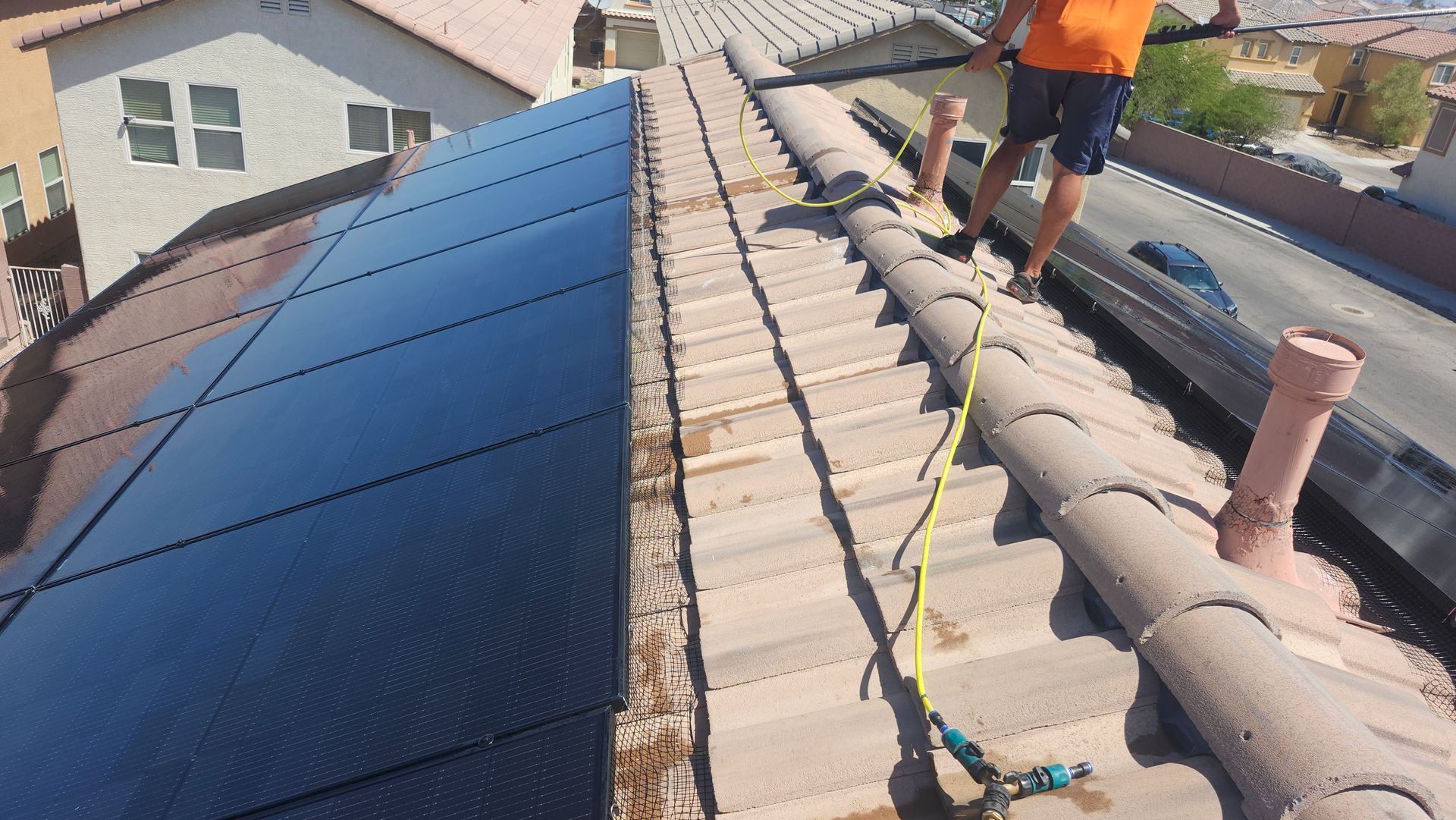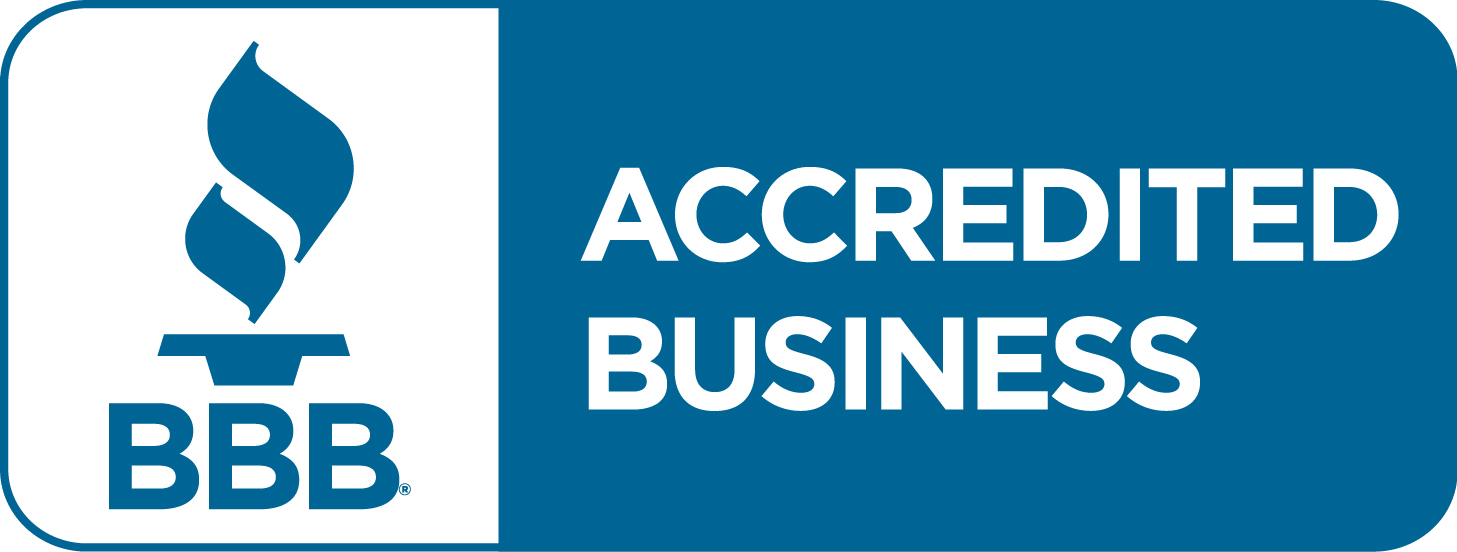By Ricardo E. Barron-Alfaro
•
October 7, 2023
Solar energy is a powerful renewable resource, but its effectiveness can be hindered by various factors. In this guide, we'll explore the impact of paint and limescale on solar panels and provide practical solutions to maintain their optimal performance, including essential tips for solar panel cleaning and maintenance. Section 1: The Impact of Paint on Solar Panels Understanding the Problem : Solar panels are engineered with precision to capture sunlight and convert it into usable energy. However, even the smallest hindrance, such as paint splatters, can disrupt this process significantly. Effects of Paint : Reflection and Absorption: Paint, especially darker shades, can absorb sunlight, leading to increased temperatures on the panel's surface. This not only affects efficiency but also contributes to wear and tear over time. Microcracks and Damage : Paint splatters can create microcracks on the panel's surface, allowing moisture to seep in. Over time, this moisture can corrode the cells and wiring, reducing the panel's lifespan. Altered Sunlight Distribution : When sunlight hits a painted area, it scatters in unpredictable ways, leading to uneven energy generation across the panel. Prevention and Remova l: Protective Coatings : Consider applying a specialized anti-reflective coating to the surface of your solar panels. These coatings not only prevent paint adhesion but also enhance light absorption, boosting overall efficiency. Prompt Remova l: If paint splatters occur, remove them promptly using a soft cloth or sponge soaked in an approved cleaning solution. Avoid abrasive materials that could scratch the panel's surface. Regular Maintenance : Implement a routine maintenance schedule to inspect panels for any signs of paint damage. Addressing these issues promptly can prevent long-term efficiency loss. Section 2: Limescale Buildup and Its Consequences Understanding the Problem : Limescale buildup is a common issue, especially in regions with hard water. Henderson, Las Vegas, and Paradise, Nevada, has a desert climate characterized by hot, dry summers and mild, short winters. It is indeed possible for dust on solar panels to mix with rainwater (when it does rain) and form a residue that contains minerals. If the rainwater contains calcium or magnesium, and if it evaporates quickly due to the high temperatures common in Las Vegas, limescale deposits could potentially form on surfaces, including solar panels. Effects of Limescale : Light Diffusion: Limescale deposits diffuse sunlight, preventing it from reaching the photovoltaic cells directly. This diffusion leads to reduced energy production. Overheating: Similar to paint, limescale can lead to localized overheating due to uneven sunlight distribution. Prolonged exposure to high temperatures can degrade the solar cells. Increased Maintenance Frequency: Limescale buildup necessitates more frequent cleaning, increasing the overall maintenance effort and cost. Prevention and Maintenance : Protective Coatings: Consider applying a specialized anti-reflective coating to the surface of your solar panels. These coatings not only prevent limescale adhesion but also enhance light absorption, boosting overall efficiency. Regular Cleaning: Implement a regular cleaning schedule using specialized cleaning solutions . These solutions are designed to dissolve limescale effectively without damaging the panels. Section 3: Solar Panel Cleaning and Maintenance Understanding the Importance : Regular cleaning and maintenance are crucial for optimizing solar panel performance and maximizing energy output. Cleaning Techniques : Use soft brushes to remove dirt and debris without scratching the panels. Consider using purified water or specialized cleaning solutions designed for solar panels. Be cautious while cleaning the wiring and connections to avoid damage. Preventive Measures : Implement a routine cleaning schedule, especially in areas prone to dust, pollution, or bird droppings. Install bird deterrents or nets to minimize the risk of droppings obstructing solar panels. Regularly trim nearby trees to prevent falling leaves and branches from shading the panels. Additional Tips: Regular Inspection : Periodically inspect your solar panels for any signs of damage, dirt, or obstruction. Professional Maintenance : Consider professional cleaning services for a thorough and safe cleaning process. Environmental Factors : Be mindful of environmental factors like shading, bird droppings, or tree sap, which can also hinder solar panel performance. Conclusion: Maintaining the efficiency of solar panels is crucial for harnessing the full potential of renewable energy sources. The impact of house paint or any paint, regardless of its transparency, can substantially diminish the panels' ability to convert sunlight into electricity. Similarly, the accumulation of limescale on the panel surface forms a formidable barrier, impeding sunlight absorption and, consequently, reducing the overall performance of solar panels. Regular cleaning and maintenance are not just recommended; they are imperative to ensure that solar panels operate at their peak efficiency levels. As we strive to transition to cleaner energy sources, understanding and addressing these factors are fundamental in maximizing the effectiveness of solar technology and promoting sustainable energy practices.

